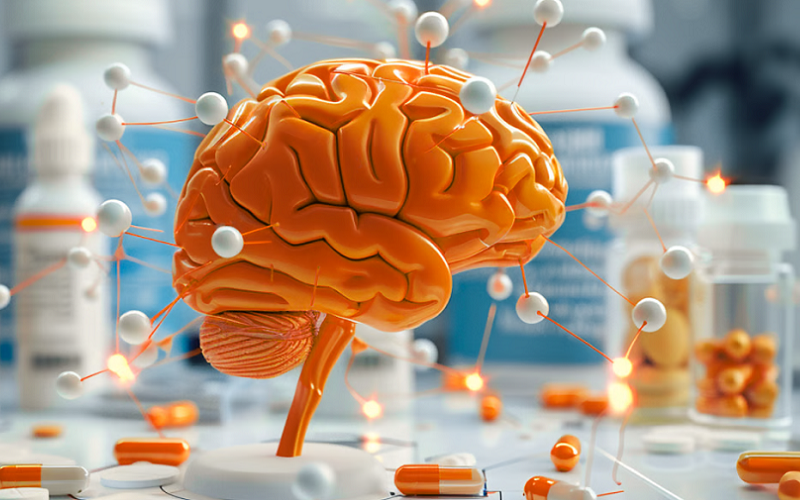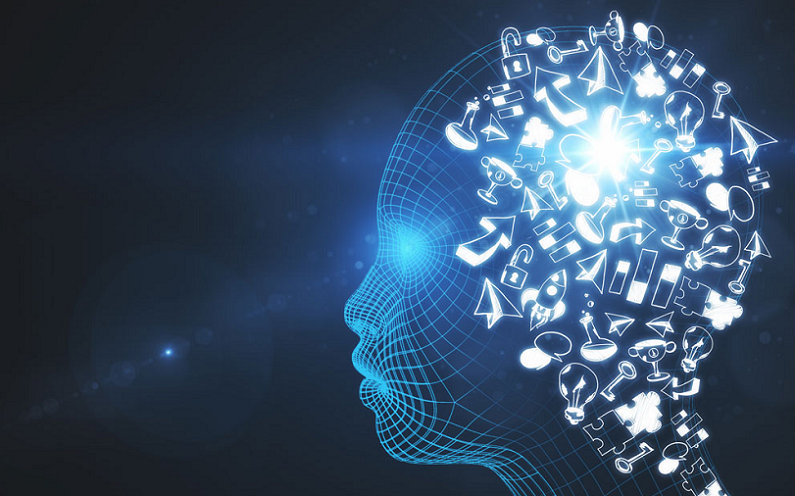
Living with ADHD presents unique challenges, often making it difficult to maintain focus and complete everyday tasks. While traditional treatments can help manage symptoms, many people are exploring natural alternatives to enhance their concentration and productivity. One promising avenue is the use of over-the-counter nootropics. Here we explore the best nootropics available without a prescription, shedding light on their potential benefits for those with ADHD.
Contents
Understanding ADHD (Attention Deficit Hyperactivity Disorder)
ADHD, or Attention Deficit Hyperactivity Disorder, is a neurodevelopmental condition that affects both children and adults. It is characterized by symptoms such as inattentiveness, hyperactivity, and impulsiveness. These symptoms can vary widely in severity and can significantly impact an individual’s daily life, academic performance, and interpersonal relationships.
Definition And Symptoms
ADHD is defined by a persistent pattern of inattention and/or hyperactivity-impulsivity that interferes with functioning or development. Symptoms of inattention may include difficulty sustaining attention in tasks, frequent careless mistakes, and forgetfulness in daily activities. Hyperactivity symptoms often manifest as excessive fidgeting, an inability to remain seated, and talking excessively. Impulsivity can be seen in actions such as interrupting others, making hasty decisions, and an inability to wait for one’s turn.
Impact On Daily Activities And Quality Of Life
The impact of ADHD on daily activities can be profound. Individuals with ADHD often struggle with organization, time management, and completing tasks. These challenges can lead to poor academic and job performance, strained relationships, and low self-esteem. Children with ADHD might find it difficult to keep up with schoolwork, while adults may experience difficulties in maintaining stable employment or managing household responsibilities. The cumulative effect of these struggles can significantly affect an individual’s overall quality of life.
Traditional Treatments And Their Limitations
Traditional treatments for ADHD typically include medication, behavioral therapy, or a combination of both. Medications such as stimulants (e.g., methylphenidate and amphetamines) and non-stimulants (e.g., atomoxetine) are commonly prescribed to help manage symptoms. Behavioral therapies focus on modifying negative behaviors and developing coping strategies through structured interventions.
While these treatments can be effective, they are not without limitations. Medications can have side effects such as sleep disturbances, appetite suppression, and mood swings. Behavioral therapies require time and consistency, which can be challenging for some individuals to maintain. Additionally, not all patients respond to these treatments, leading many to seek alternative or complementary approaches to managing their ADHD symptoms.
Introduction to Nootropics
Nootropics, often referred to as “smart drugs” or cognitive enhancers, are substances that aim to improve mental functions such as memory, creativity, and concentration. They are gaining popularity among those looking to boost their cognitive performance and mental clarity. Understanding what nootropics are and how they work can provide valuable insights into their potential benefits for managing ADHD.
What Are Nootropics?
Nootropics are a diverse group of compounds that include natural substances, supplements, and synthetic drugs. These substances are designed to enhance cognitive functions such as attention, memory, learning, and problem-solving. Unlike traditional medications that target specific neurological disorders, nootropics are often used by healthy individuals seeking to optimize their mental performance. Some common natural nootropics include herbs like ginkgo biloba and bacopa monnieri, while synthetic nootropics might include compounds like racetams and modafinil [1].
Historical Background And Evolution
The concept of nootropics dates back to the early 1970s when Romanian psychologist and chemist Dr. Corneliu E. Giurgea first coined the term. He defined nootropics as substances that enhance learning and memory, protect the brain from physical or chemical injury, and improve the efficiency of neuronal firing control mechanisms. Over the decades, research on nootropics has expanded, with scientists exploring both natural and synthetic options. Today, nootropics are widely used not only by individuals with cognitive impairments but also by students, professionals, and athletes seeking a mental edge.
Benefits And Risks Of Using Nootropics
Nootropics are sought after for their potential to enhance various aspects of cognitive function. Some of the key benefits reported by users include improved focus, better memory retention, enhanced creativity, and increased mental clarity. These benefits can be particularly appealing to individuals with ADHD, who often struggle with attention and concentration.
However, it is important to be aware of the potential risks and side effects associated with nootropic use. While many natural nootropics are considered safe when used appropriately, synthetic nootropics can carry a higher risk of adverse effects. These may include headaches, insomnia, digestive issues, and mood disturbances. It is crucial for users to conduct thorough research, follow recommended dosages, and consult healthcare professionals before incorporating nootropics into their routine.

Criteria for Selecting Over-the-Counter Nootropics for ADHD
Choosing the right over-the-counter nootropics for managing ADHD can be challenging. It is important to consider several factors to ensure the selected nootropics are safe, effective, and suitable for individual needs.
Safety And Efficacy
Safety and efficacy are paramount when selecting nootropics. It is crucial to choose products that have been tested for safety and have a proven track record of effectiveness. Look for nootropics that have undergone clinical trials or have substantial user testimonials supporting their use. Always check for any potential side effects and interactions with other medications.
Legal Status And Accessibility
Not all nootropics are legally available in every country, so it is important to verify the legal status of any nootropic before purchasing. Over-the-counter options should be easily accessible without a prescription. Ensure that the nootropics you choose are approved for use in your region to avoid any legal issues [2].
User Reviews And Clinical Evidence
User reviews and clinical evidence provide valuable insights into the effectiveness and safety of nootropics. Reading reviews from individuals who have used the nootropic can help gauge its potential benefits and drawbacks. Clinical studies offer scientific validation of a nootropic’s efficacy. Prioritize nootropics with positive feedback and strong clinical backing.
Top Over-the-Counter Nootropics for ADHD
For those seeking to manage ADHD symptoms, several over-the-counter nootropics have shown promise in improving focus, attention, and cognitive function. Below are some of the top options, including their mechanisms of action, benefits for ADHD symptoms, recommended dosages, and potential side effects.
Caffeine + L-Theanine
Combining caffeine with L-theanine is a popular nootropic stack known for enhancing focus and reducing anxiety.
Mechanism of Action
Caffeine stimulates the central nervous system, increasing alertness and energy levels. L-theanine, an amino acid found in tea leaves, promotes relaxation without sedation. Together, they create a balanced effect of heightened focus and calmness.
Benefits for ADHD Symptoms
This combination can help improve attention span, reduce impulsivity, and enhance cognitive performance, making it beneficial for managing ADHD symptoms.
Recommended Dosage and Potential Side Effects
A common dosage is 100 mg of caffeine combined with 200 mg of L-theanine. Potential side effects include jitteriness, insomnia, and increased heart rate, primarily from the caffeine component.
Omega-3 Fatty Acids
Omega-3 fatty acids, particularly EPA and DHA, are essential fats found in fish oil that support brain health.
Mechanism of Action
Omega-3s are critical components of neuronal cell membranes and play a role in anti-inflammatory processes within the brain, enhancing cognitive function and mental health [3].
Benefits for ADHD Symptoms
Studies suggest that omega-3 supplementation can improve attention, reduce hyperactivity, and enhance overall cognitive performance in individuals with ADHD.
Recommended Dosage and Potential Side Effects
A typical dosage is 1,000-2,000 mg of combined EPA and DHA per day. Side effects may include fishy aftertaste, gastrointestinal discomfort, and, in rare cases, bleeding issues.
Rhodiola Rosea
Rhodiola Rosea is an adaptogenic herb known for its ability to reduce fatigue and improve mental performance.
Mechanism of Action
Rhodiola works by modulating the stress response system and enhancing the production of neurotransmitters like serotonin and dopamine, which are crucial for mood and focus.
Benefits for ADHD Symptoms
It can help reduce fatigue, improve focus, and enhance cognitive function, making it a useful supplement for managing ADHD-related symptoms.
Recommended Dosage and Potential Side Effects
A common dosage is 200-400 mg per day. Potential side effects are mild and may include dizziness, dry mouth, and gastrointestinal upset.
Bacopa Monnieri
Bacopa Monnieri is an herb traditionally used in Ayurvedic medicine to enhance memory and cognitive function.
Mechanism of Action
Bacopa supports cognitive health by promoting the growth of nerve endings, enhancing communication between neurons, and providing antioxidant protection.
Benefits for ADHD Symptoms
It has been shown to improve attention, memory, and reduce anxiety, which can be beneficial for those with ADHD [4].
Recommended Dosage and Potential Side Effects
A typical dosage is 300 mg of Bacopa extract per day, standardized to 50% bacosides. Side effects may include nausea, fatigue, and digestive issues.
Ginkgo Biloba
Ginkgo Biloba is a popular herbal supplement known for its cognitive-enhancing properties.
Mechanism of Action
Ginkgo enhances blood flow to the brain, supports neurotransmitter function, and provides antioxidant benefits, which collectively improve cognitive health.
Benefits for ADHD Symptoms
It can help improve focus, reduce symptoms of anxiety, and enhance overall cognitive performance, making it a suitable option for ADHD management.
Recommended Dosage and Potential Side Effects
A common dosage is 120-240 mg per day, divided into two or three doses. Potential side effects include headache, dizziness, and gastrointestinal discomfort.
References
[1] 7 Best Cognitive Enhancers For ADHD
[2] Can Nootropics Help with ADHD?
[3] What are nootropics (smart drugs)?
[4] Non-Pharmacological Treatments for ADHD in Youth

